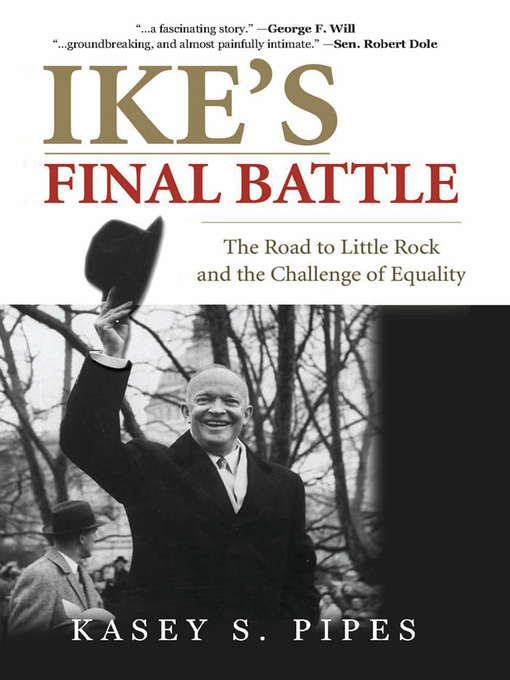
Ike's Final Battle
The Road to Little Rock and the Challenge of Equality
کتاب های مرتبط
- اطلاعات
- نقد و بررسی
- دیدگاه کاربران
نقد و بررسی

January 29, 2007
A former speechwriter for Arnold Schwarzenegger and co-author of the 2004 Republican platform, Pipes uses his insider's perspective to look at the Eisenhower presidency in the age of desegregation. Though Pipes can fawn, he doesn't pull punches, showing Eisenhower at his most ignoble (refusing to comfort the mother of a lynched black boy), manipulative (overtly soliciting Chief Justice Earl Warren to rule conservatively in Brown v. Board of Education) and wrongheaded (remarking that Southerners are not "bad people. All they are concerned about is to see that their sweet little girls are not required to sit in school alongside some big overgrown Negroes"). Pipes argues, however, that such examples belie the President's complex and ultimately fortuitous take on the situation: personally sympathetic with blacks, Ike nevertheless felt that the government couldn't legislate morality and favored gradual integration, frustrating black rights champions like Thurgood Marshall but helping to defuse the increasingly volatile mood of the country. When the chips were down, of course, Eisenhower defended the ruling without hesitation, famously sending in the 101st Airborne Division to Little Rock when Arkansas's governor refused to integrate. An unflattering reminiscence of a difficult time in American politics, Pipes's book nevertheless reminds readers how far the country has come.

February 26, 2007
A former speechwriter for Arnold Schwarzenegger and co-author of the 2004 Republican platform, Pipes uses his insider's perspective to look at the Eisenhower presidency in the age of desegregation. Though Pipes can fawn, he doesn't pull punches, showing Eisenhower at his most ignoble (refusing to comfort the mother of a lynched black boy), manipulative (overtly soliciting Chief Justice Earl Warren to rule conservatively in Brown v. Board of Education) and wrongheaded (remarking that Southerners are not "bad people. All they are concerned about is to see that their sweet little girls are not required to sit in school alongside some big overgrown Negroes"). Pipes argues, however, that such examples belie the President's complex and ultimately fortuitous take on the situation: personally sympathetic with blacks, Ike nevertheless felt that the government couldn't legislate morality and favored gradual integration, frustrating black rights champions like Thurgood Marshall but helping to defuse the increasingly volatile mood of the country. When the chips were down, of course, Eisenhower defended the ruling without hesitation, famously sending in the 101st Airborne Division to Little Rock when Arkansas's governor refused to integrate. An unflattering reminiscence of a difficult time in American politics, Pipes's book nevertheless reminds readers how far the country has come.
Copyright 2007 Library Journal, LLC Used with permission.

























دیدگاه کاربران